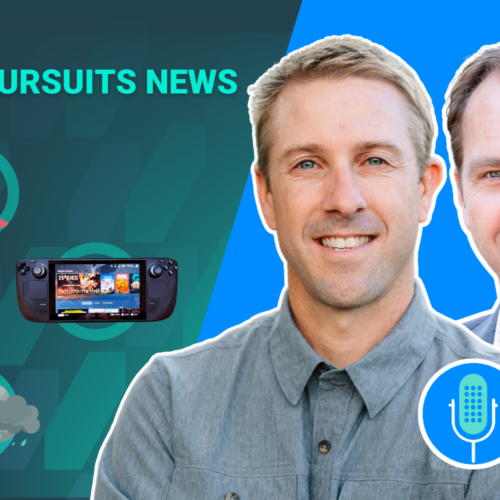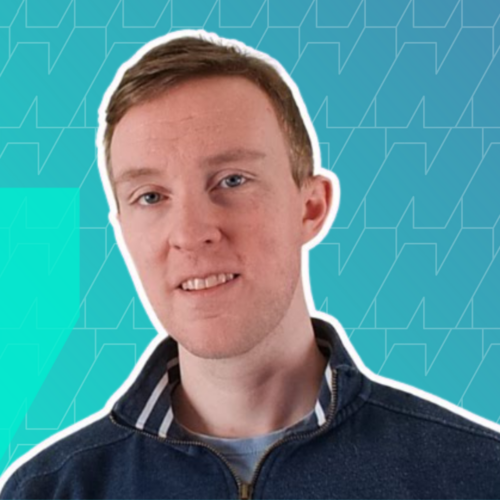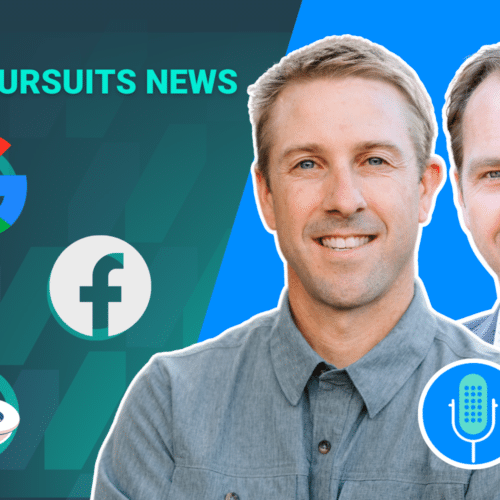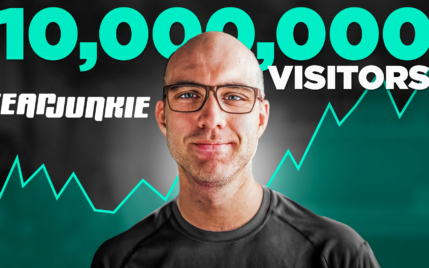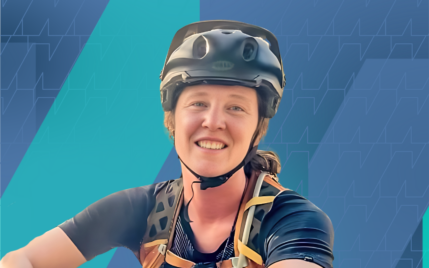How Ken Savage Reguarly Gets #1 on Product Hunt and Grows Traffic Through Launches
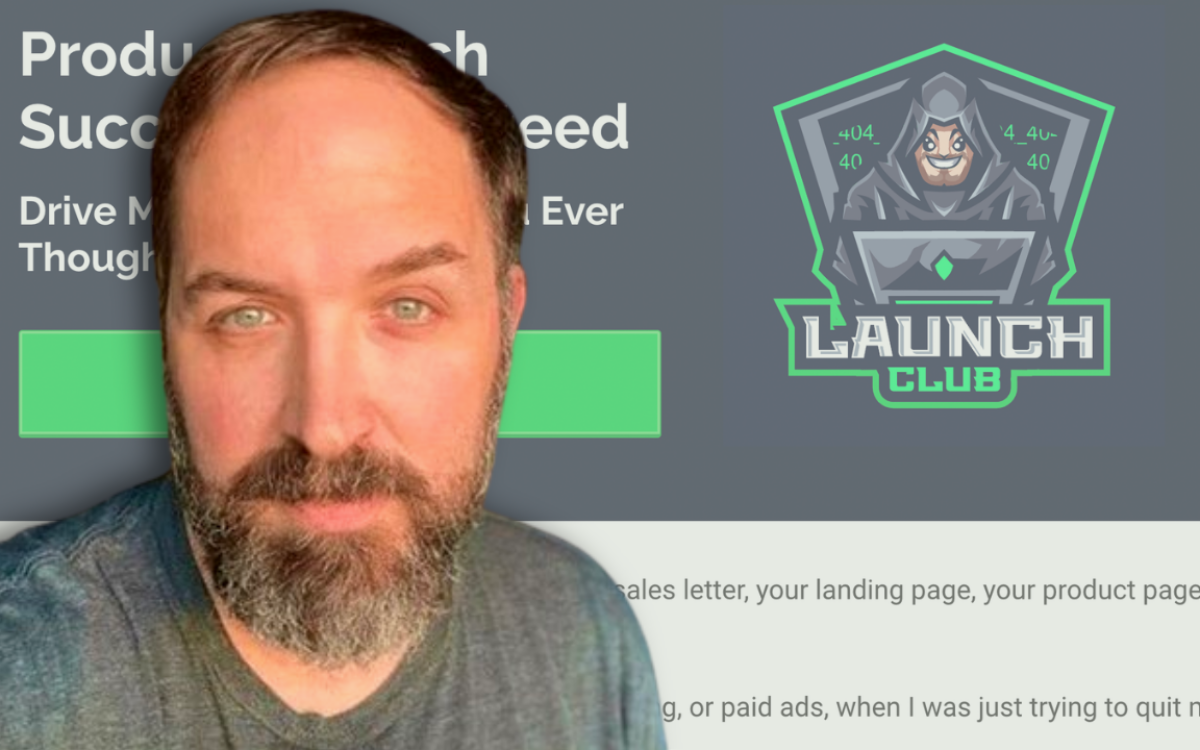
When you buy something through one of the links on our site, we may earn an affiliate commission.
Today's guest on the Niche Pursuit podcast is Ken Savage. Ken is the owner of ‘Launch Club,' a successful service aggregating various people to help business owners launch their products and grow their website traffic.
The interview starts with Ken giving us a brief background of how he got started. He then details how to get a product or service to number one by using different hacks and tricks to increase exposure.
In addition, the conversation covers the importance of engaging with your audience on various platforms, which is interesting to hear even if you don't have a product or service to sell yet.
Ken walks us through the process involved and uses an example of a product called ‘glow in the dark shoelaces.' He highlights how the product succeeded on its launch day and the software, tools, and strategy they used to make this possible.
If you have traffic on your website with no product, Ken shares different ideas on how to think about what products to launch and how to do it. Furthermore, as the conversation starts to flow, Ken starts to talk about the different growth strategies anyone can use.
Some Of The Other Things Discussed By Ken Savage Include:
- How to get more people to your website
- Ways to increase traffic
- How to get more affiliate income
- Product Hunt
- Quora (one client reaches 140k monthly visitors)
- How to build local lead generation websites
- The steps to sell the leads to local businesses and make money from doing so
- Growth hack strategies for specific products
Once again, this is another action-packed interview that I'm sure you'll enjoy. Whether you have a product or not, you'll learn a lot from Ken, so as always, take notes and enjoy the episode.
Links And Resouces Mentioned During The Interview:
- Launch Club – Product Launch Membership
- Ken Savage's Twitter Account — @kensavage
This Episode is Sponsored by: Rank IQ and Ahrefs.com
Watch the full interview with Ken Savage:
Read the full transcription:
Jared: Welcome back to the niche pursuits podcast. My name is Jared Bowman. Today. We are joined by Ken Savage with launch club. Hey, Ken. Welcome on board.
Ken: Hey Jared. Thanks for having me.
Jared: Yeah. Hey, you know, you might be the first one on board to have a, a back wall with a logo placed on it. I mean, for those watching on, on video.
Yeah, we don't, all I need to say is your name. We, we know where you're from.
Ken: it's self promotional, of course, but I do. You know, I've got an agency that I've talked to well, over 600 people, I've launched over 476, uh, products as of today, actually. And a lot of people, a lot of zoom calls, they see this and they say, Hey, what's launch club.
And then I say, well, it's probably good for you. And then I go into my pitch and that's how we typically get people. I don't do any kind of advertising. We've got a couple hundred people in that club, so we can talk about that
Jared: later. You've shared some stories about some of the interesting marketing tactics you've used.
And so knowing some of the stories that we've talked about before, as we, as we kind of built the agenda for today, I'm not surprised to hear that works really well. Let's, let's talk about your, let's talk about launch. Let's talk about, you know, what you are doing. Give us a little bit of a backstory. If you could, people love kind of learning about your road or your journey to where you're at now.
And then we can, can launch into some of the stuff that we have for today's, uh, today's
Ken: interview. Yeah, sure. 2000 or so, 99, 2000, the Y2K thing, way back then I was a web developer or web designer, basically an HTML coder, uh, little bit of J Qury and whatever it was back then, but I was building websites for, you know, a day job or day job that I had.
It became something that I was interested in building websites. Uh, the internet was a thing then for sure, but a lot of bigger enterprise companies just didn't have a good website presence or it was a brochure. Um, it was lame. So I got into that and I just started, you know, running. Through jobs, maybe one a year, just to kind of work myself up the salary ladder or career ladder too.
Got boring. After a couple of years, um, you're making the same websites. I'm I'm hand coding everything. Cause there was no, oh man. You know, tools, no goos, no. You know, editors front, Microsoft front page was the thing. Yeah. Back then dream Weaver. Uh, whatever that company was was wait for you to say dream Weaver.
Yeah. Dream Weaver was great because they had that code editor, um, and color coded everything too. So you could really, if you had to customize some of the code, you could get in there and do it yourself. Yeah. Some of that stuff was just like, I knew, I, I talked to a lot of people. I had a lot of friends from, uh, these webmaster kind of conferences that I would go to.
And I had a lot of friends that would say, you know, stop coding websites, start getting into traffic generation. There's going to be tools eventually. Like front page where you can just click, click, click, build a site, maybe even from a template that was like, you know, space, age or sci-fi back then. So, uh, where it took you weeks and weeks to build a website that it was just half decent.
Eventually these tools were, were coming around and I said, all right. So let me focus on something called search engine optimization. Um, yeah, I learned that from a couple of, you know, bigger guru type people, um, who spoke at conferences. There was a few that I would go to New York, Las Vegas. Uh, I think another one was in Orlando way back in the day.
And I'd hear these guys talk and I'd just kinda look up at them like, wow, you get 10,000 visitors a month. That's amazing. I get 10 or whatever it was at the time. Um, and they would talk about search engine optimization and some of those people. And I think I have a little point and shoot camera video.
Of this guy, Greg, I don't, I won't call his last name out. Um, or maybe that's not even his first name. Um, very, very big player in the game. And he would say white text on a white background on every single page at the bottom is great for SEO, Google, or I guess it was Google, maybe Yahoo. Um, at the time MSN, whatever the, you know, best search engine was back then even Alta Vista.
Um, I'm dating myself, but, um, that was the best SEO techniques back then, and then met a keyword meta title. You know, spaming the hell out of those things with whatever keyword you wanted to rank for? Um, I realized I could get some traffic. I would get, um, you know, search ranking. So with that, I started to build new sites, best running shoes, buy a home in Boston, um, office leasing in Boston, uh, instead of making these websites that were.
Three and four pages, basically a homepage, a main article page, which, you know, would drive most of traffic to, and then they're like an, about us, a contact us page. So it looked somewhat decent, but they all eventually went to my AOL page or AOL email address. So at least I would get some information from people, but that was my way of, of SEO traffic getting leads.
And then eventually I would learn, you know, the light bulb moment or the, the apple falls in your head kind of thing. I should be selling these leads to local businesses, not myself, or, you know, trying to do something with them. So instead reaching out to people and say, you know, I think one of the biggest success stories add real early on was Boston office leasing kind of keywords.
Uh, I would get people who are interested in, you know, a certain kind of. Budgets or square footage of the leasing that they wanted to purchase for their small business. Um, they came to my site because they ranked like number one, number two, kind of flipped constantly. And I could get leads for that. And I would just call up these commercial real estate people and say, Hey, I've got these people who are interested in, in, uh, you know, I had their name, I ugly ugly form Jaredo it was like this long, um, 12 fields.
Um, how, how was the stupidest question I had was, uh, how motivated are you to move in the next three months? How motivated you to move in the next six months? Um, I had all these stupid questions in there and I didn't really get the optimization part of it, but people filled that stuff out. I collected leads.
I called these, you know, manually called these real estate people and I sold. That contact to three different people all at the same time. So whoever I called first, if they called quickly, they were gonna be the first ones, but I would sell that lead to these people. Eventually I moved into like, you know, emailing it to them slowly.
You know, after a couple of years it would just, you know, SMS, text messages to them. Um, but that's how I really started, you know, not just building websites, not just getting, you know, spammy, generalized, um, browser or, uh, search engine traffic, but taking both of those things and actually making money with it.
Uh, that was the aha moment for me, where I could actually build my own business and stop making all these founders that I was working for. Rich.
Jared: Those tactics are awesome. I remember the days when you could build a three to four page website and rank it
Ken: even remember, um, remember exact match domains.
Jared: Oh yeah.
Oh yeah. You'd only need to build a one page website to get those things
Ken: to rank one page website, two, 3000 words of just fluff. You would rank very easily because of that domain. I, I bought, um, my funniest one was Arine addiction where people who had nose spray addiction problems, I ranked number one and I still think I ranked number top five or top 10, um, it's nose spray, addiction.com.
If anyone wants to go look it up, but it still sits out there as one of the highest ranking sites, just because of that, you know, exact match domain thing. You use all those kind of gray hat tactics to get traffic, but, um, eventually it works and if it sticks and you build links from it, that's long term growth.
So that works. Well, I want to talk about
Jared: the lead gen piece that you're doing, where you're, you know, you talk about selling leads, but maybe catch us up to today and what your involvement online or on the internet looks like today and where you're spending your time.
Ken: Sure. Um, I guess maybe the more relevant stuff for the audiences, you know, like the last five years, um, local lead, uh, generation has been the best for me to get into, um, there's affiliate programs and there's, you know, affiliate marketing that you can do.
Uh, but you're always competing with, you know, what's my traffic sources, uh, you're competing, you know, worldwide or nationwide sometimes with some of those. Other competitors out there. And I hate competition. I want be the best, or I don't want exist in that space at all. So I got into, you know, maybe five or six years ago where I was ranking, um, you know, zip code plus zip code, plus solar, us solar panels, and all kinds of, um, low quality spammy kind websites.
And it worked. Um, I would just give it about a half a dozen directory links. And once I started getting traffic for a lot of that stuff, uh, Google my business or Google business pages or whatever it was called back then, um, was pretty effective. You would probably be able to generate a couple hundred visitors within a month.
That are very targeted within a particular area sometimes just within a city, um, pretty quickly. So that's how I focused my side gig. I guess I was a director of marketing for a few startups in the Boston area. Um, like in the high tech space and crypto currency, uh, cyber security kind of stuff, crypto later, um, that it was a good side gig, put up a website, get some traffic.
Uh, once I got traffic rolling in, I put a real basic, you know, uh, for more information name, email address, some qualifying question, like how much square footage you're looking for, or how many, um, you know, when's your wedding date for? You know, they were looking for a photographer. When's your wedding date kinda thing, a wedding photographer, uh, real simple stuff.
I would take that information and I would instantly email it to three or four different people that I had set up ahead of time and sell that for, you know, 10 bucks. I think it was the cheapest $85, $95. Something like that was the most expensive lead that I would sell. And I would do that, you know, on my phone while I'm at a job doing supposedly doing something else.
Um, I could, I could make a hundred to $200 a day just doing that kind of stuff. When I started getting to more of the automation, um, filling out forms, uh, text messaging it directly to people or round Robin, if they wanted exclusive leads, it got pretty interesting. Um, some, you know, here's a little tip for anyone out there that still works today.
If there's a real estate agent in your area, that is a big seller, they're popular, you see their signs all around. Um, you know, they're spending money on ads for themselves, you know, the billboards. Call Ken, if you wanna sell your homes kind of stuff, uh, contact that person and say, I can give you, you know, if they're not already doing it, but you know, if it's, uh, 1 23 main street is their next property, that's coming up by 1 23 main street.com or whatever the address obviously is sometimes you need to add the town or the city to it as well.
If it's not available, build a real simple website that you can go and take a couple pictures on the outside of it, and then put something like a live chat in the, you know, Intercom or, or, um, crisp or any of those things. Put a live chat right on that page with no other call to actions and get traffic that way, where you can send a lot of that traffic to the real estate agent.
And you're going to rank pretty quickly. Um, nowadays it's. Difficult because houses will flip or properties will flip in just a week. Um, so by, by the time you have it up and running, it might even be sold. But up to about a few months ago, that strategy worked very good. It still works today for commercial real estate, where you can put a sign, a site up like that small form, live chat, chat bot, whatever you wanna put in there.
Uh, these real estate agents don't have that technicality, even the very success ones, but I make a couple million a year right down to somebody who's just, part-time, uh, that's something that they can certainly get into and a GMB, half a dozen, maybe a dozen, um, directory listings will be enough link building that you need to do to at least start to get some traffic.
And when someone looks at. You know, uh, 1 23, you know, park street kind of thing in a small little town, they might see some of those Redfin and Trulia kind of, um, listings that are there, but yours will be there too actually rather quickly. Um, usually within a week and a half, two weeks, I can rank that stuff with no real difficulty, um, no, you know, techniques or anything secretive that I'm using.
And then you can, you know, kind of collect leads, sell them to local real estate. That might be something that, you know, your audience could certainly do pretty easily. It just requires a little bit of hustle set up a website, talk to a real estate agent. You know, I think that's something that they can do, you know, just within a couple of days.
So
Jared: is this the type of stuff you're doing right now with launch club or, you know, tell us what's going on with launch club and what you're doing, you know, on a day to day basis right now?
Ken: Yeah, so I got a, a, um, an agency that does product launches for. Mostly SAS and direct to consumer, uh, products, anything you basically can buy online.
E-commerce kinda things. Um, I do product launches for those companies. That's kind of the sweet spot. Um, my prices have gone from literally $200, four years ago when I started to, um, you know, add a couple zeros to that, or, you know, doubles or whatever, to, you know, very expensive for one day product launch kind of thing.
So, uh, the problem was that, you know, you get a company who makes, you know, iPhone cases or, you know, whatever it is. Uh, they don't have $4,000 for a budget for a product launch for one day to work with me. So I always wanted an alternative that I could still help them and not be able to say, sorry, good luck.
And that's it built launch club to. Bring people together that can do two things. They can get their small products, small business, small office, whatever it is, product launched. And they can also help people while earning credits for themselves. So you help promote you help, like you help vote, share, even comment, sometimes other people's stuff, their promotions.
And you're gaining credits for that information that, you know, little bit of help that might be three to four minutes is about the average time that we're seeing people spend per day. They'll gather 5, 8, 10 credits in a particular day. Eventually when they hit 50 or 60 credits, they can launch on some of the biggest platforms out there and do very well.
If not exceed everyone else out there because they have this launch club of members who will promote their stuff. If you put something on Reddit, your blog post, your awesome story on how you, you know, did something and you've got a call to action at the end for a free download, drop that page in, you know, launch club say I'd love up votes from the team.
My team will, you know, the, the members of launch club, um, will go in there and boost the hell out of that. And, you know, you'll be the top post on that sub for day or even product hunt or core, or even, which is very good. So that's what launch club does. It's a very inexpensive way for people to promote their own product and get started.
So that's why I did it otherwise. You know, I'm dealing with these enterprise and larger, bigger budget companies, you know, to do their product launches and most smaller companies just don't have those budgets.
Jared: That's pretty ingenious. So basically what you've done in essence is you've almost what you've created.
Community communion, then gamified. To everyone's advantage so that everybody wins.
Ken: Yeah. The agency part of things, you know, there's, there's, uh, 2,700 or 2,700 plus people that I have in on my team. And they do outreach for the real big product launches that I, I do. Um, I've launched unicorn companies right down to, you know, a couple thousand dollars a month kind of people with some kind of budget.
So, um, taking those people into consideration, there's not a platform that I can't dominate for the agency, but somebody came, somebody came in with glow in the dark, uh, shoelaces or runners, you know, people that run at night, shoelaces that glow in the dark. Uh, they said, Hey, I wanna do a big product launch.
I talked to 'em. I figured out and I said, Hey, this is pretty good. The website looked great. Uh, they spent some time on it. So maybe they have some money, a little bit of budget. I gave them a price of like $3,500 for a couple of different platforms. And the guy just withered on, on a, you know, zoom call and was like, oh man, I can't do that, but I really, really need this.
I said, all right, well, lemme see what I can do. Gimme a day. I'll think about it. Um, I took a half a dozen, uh, power members that I have and in launch club and some, you know, on my team and we, we put together something, a package that, you know, I gave him a little bit of a discount, but made a huge impression for him.
Uh, number one, on product hunt, he had three posts on Reddit. There were the top post in like, um, outdoor fitness, uh, runners, something or other subreddit, um, subreddits. They have tens of thousands. I think two of them had a hundred thousand plus members in these subreddits point being is you got a lot of exposure for very little money, um, using.
Product launch techniques that I think as long as you have a decent website with some, you know, interesting, valuable content around it, you sell a product. If you have a service, um, it's very possible that this club or the techniques that I have can be very effective to get a lot of traffic long term.
It just works. And for whatever damn reason, I don't know why, but it's not a niche that a lot of people talk about. I've been doing it for three or four years. And supposedly I'm the product launch guy. Um, every time I take these new, you know, new prospect kind of calls, maybe five or eight or so a week, um, all word of mouth, they all say, Hey, you're the product launch guy.
I got a referral from a friend of mine that you helped out. I'm like, great. I always find out who it is. You know, I'll give them a little something or help them out too. But, um, I tell people what I do. It's no secret. Uh, they just don't have the team that you do the outreach, uh, behind that. So, uh, that's why they work with me.
Otherwise. I say now I have an alternative where, you know, you can join launch club and be just as effective, not as quickly, but not as large. Um, I've had a lot of clients, dozens, 40, 50, maybe, uh, New York times, um, business week, um, tech, a number on tech, one of those, um, as an example, lot of people got a lot of exposure from one or two of these platforms.
Just because they were in the top three or, or, or the top product or the top spot and get a lot of exposure. So it's effective. Um, but again, like I said, not a lot of people talk about this. Everyone focuses on SEO, paid ads, uh, cold email outreach, all that stuff is great. It takes some time, it takes a lot of work.
This stuff you can do within a couple of days, once you have a decent landing page, a little bit of traffic, uh, from these, you know, product launches or really marketing campaigns. And, you know, you've got a decent offer that people want today. Nobody's got a credit hot card in hand searching the internet, um, looking for something.
But if you can get them into a funnel with, you know, uh, ebook or watch my video or something like that, highly effective of, uh, doing product launches.
Jared: Well, let's go through an example or two so that, um, you know, so everybody get their mind kind of wrapped around what this might look like in real life.
Uh, because I mean, you've talked about all these just different really nuanced privileges. It's clear your mind, you think of so many creative things in terms of how to get a, a product launched. And I'm curious to hear maybe some specific examples of, I mean, do you have, you could share with us that might help kinda crystallize
Ken: what this looks like.
Yeah. I've talked to these clients and then don't care because they've a little, little bit of time since they've launched, they got out what they wanted out of it. So I've cleared with them. Um, rent the backyard is a company that puts tiny houses or these little trailer houses in your backyard, in the Northern California area.
Um, they got a little bit of backing and it was a cool product that they came to me kind of a friend of a friend and said, Hey, can you help me out? Product hunt. We're gonna launch, uh, product hunt.com is a place where, you know, hundreds of thousands of, of, uh, traffic per week is what I'm told. Um, lots and lots of people, lots of tech oriented people go there to just see the newest kind of thing.
We launched them. Um, my team did outreach. They hit number one, number two for the day, uh, top three or four, I think, uh, for the week. Uh, lot of exposure and, um, yeah, number one for the day. Number four for the week, uh, they told me like, Hey Ken, something's happening. Our phone is ringing and emails coming in from number of news sources in the area, in the bay area, uh, San Francisco, um, there was a couple of, uh, tech crunch was one of them.
They did a, a news story on them. Uh, when I say they blew up or went viral or whatever you want to call. Uh, understatement. They had hundreds of thousands of people to their website shortly after some of the launching that I did for them. Uh, just because of the exposure that they got. Now, the two founders, which are like recent college grads at the time are now doing those, you know?
So tell me about your story, kind of being back and forth with a news publisher, a newscaster kind of thing with their logo in the background, they're getting a ton of traffic shortly after that, all that PR kind of blitz that that happened all because of that product launch. I think they brought in some investors.
They're a very large company. I think they have a couple of dozen people at are building these tiny houses for them now, uh, very successful that all started with a product launch. So very happy to help them. Uh, but like I said, these product launches on these platforms like product hunt, Reddit, Quora, all the social media platforms that are out there, even very niche places like growth hackers.
Indie hackers. Um, doesn't take a whole lot, just takes some decent content and some, um, massaging of the voting or, you know, outreach for, to get people to, uh, boost your, your post up higher. And, um,
Jared: so specifically speaking, when it comes to this one for rent the backyard, you know, like what, again, give us some, if you can, like some more tactile stuff about what this looks like, what does it look like to launch a product?
And I, you know, drive so much volume and traffic in the first couple days, the first week you've talked about Reddit and core and these sorts of things, but just again, so I can get my mind wrapped around, like, you know, how does that actually look in practice?
Ken: So it doesn't take much to actually submit a product to product hunt.
Uh, for instance, that being one of the biggest that I can, um, Influence, um, the right, you know, you wanna be a little bit click baby. You don't just wanna say, uh, we sell glow in the dark I'm I'm looking at. Cause I got shoes over there that have it, but um, we sell glow in the dark laces. They're cool. Click here.
Boring. Um, stop getting run over by cars. When you run at night, use our laces or you know, and show cool images of, of people running with these laces and how bright they are be clickbait. If you can do that and then influence the, uh, the side of it that you supposedly can't control, um, it's, you know, democratic and everyone has to vote for if they think they like it, but every single product on these platforms reach out to their friends, their family, their email list, their social media.
Hey we're here today. Can you help us out? I do it with my team and we do outreach for those people. So we'll find runners, we'll find tech people. We'll find people who have voted for other products and boost them, um, saying, Hey, can you, you know, take a look and we appreciate your support kind of thing.
Uh, that kind of outreach is done every day by the biggest companies out there, but the smallest companies can now compete because of this service so highly effective. And it doesn't take much other than when you submit, be a little click baby, be very honest with your product and what it can do and what it looks like.
And then, you know, shoot for the big pie in the sky moment saying this is gonna be an amazing product when you get those votes. And when you get those, you know, influencers doing tweets or, you know, LinkedIn posts for you, uh, you're gonna look like a big deal. And then other people bloggers, journalists, podcasters, We'll eventually, you know, might start calling and saying, you know, we'd like to do an interview or we'd like to introduce this to our community.
Um, that's some of the stuff that can happen with it. There's not a whole lot of technique behind it, other than doing that work, doing that outreach, getting those votes. Um, most people can't get that in quantities. Uh, large quantities, hundreds, maybe a thousand per day. I can't. So,
Jared: so a lot of the secret is just, I mean, you know, the algorithm feeds these various algorithms feed engagement, right?
So engagement's so key. I mean, having a great offer, having a great product, but you know, engagement on all these platforms. Yeah. Is what drives it. Number
Ken: one, here's an, here's an example, Jared of that engagement, um, engagement equals or engagement will drive, reach, um, Twitter. You put a tweet up on Twitter.
Um, check out this link. It's awesome. It's got my awesome blog post in it. Nobody's gonna thoroughly care about what you've done, but if you get, say 200 likes favorites and a half a dozen comments on that tweet, the algorithm allows more people to see it. And they'll also do the suggested, uh, you know, keywords.
If you have in that tweet, um, anyone that follow a hashtag or particular keywords, or now they call them
people you should know, or influencers, essentially, you can get a lot more play by getting a small or decent size people favor or liking your tweet. Um, that's manipulating the algorithms, um, with the same technique everyone except Elon Musk does now. So if you ever a look at his tweets, If you watch them live, you'll see that he's getting hundreds of likes every five seconds.
Every time that updates that reach is basically going out to his what, 60 or 80 million people. Everyone's seeing that. And it's also getting suggested everywhere. Your tweet is not doing that. If you can get a couple hundred people over 15, 20, 30 minutes, uh, to like your tweet, you will reach that threshold of, of the reach that's possible on Twitter.
Um, makes a big, big difference. I've had a lot of products, a lot of people, um, their tweets go viral. They get a hundred thousand views on their tweets. So these algorithms on these platforms, aren't, bombproof, they are, you know, you can work and massage them to your favorite.
Jared: Are there any strategies or tips you have for how to kind of massage them to your favor?
I mean, obviously you've kind of explained what, what the inner workings of like a launch club scenario are, where yeah, you've got a lot of people that have, you know, again, I, I keep saying the word gamified, but kind of have incentive to go, um, help somebody else's launch out and then can cash that in down the road for their launch.
But what other, like what techniques are there for, for kind of increasing engagement across the board on whatever you're you're you're doing, if you're not maybe involved in like a launch club or an actual organized community. Like that
Ken: biggest thing I always say is, you know, don't, um, rattle some something off, uh, last minute and expect it to work, build a community of people.
Um, and any real founder out there who does business online will say, you know, roll their eyes and say, Sure, easy to say, but tough to do, uh, build a community of people, of, you know, a list of people that you can reach out to and say, uh, I'm doing something in a month from now would love your support. Uh, that thing I'm doing is in two weeks a week out, say, you know, Hey, Jared, um, I'd love your support on this thing, any kind of feedback, you know, so you're kind of warming people up, uh, that is the number one hack or the number one advice I give to people who have time to launch something, uh, get people excited or warmed up before you're to launch.
When you on launch day, you can reach out to those people. Uh, if you happen to launch on product, there's a product that is, you know, it's a sleeper, as far as I'm concerned, it's called ship S H I, uh, it's in their products or services. Um, Navigation at the top. It's basically a coming soon page where people can kind of subscribe to something by clicking one button, no email address, because you're already logged into product on it.
You won't have to do that one button to subscribe and you get a notification that has been the number one. I dunno, hack that I've used for most launches that I do where I have two plus weeks of advanced time. Mm. To build that up because basically it's a notification, Hey, we're launching on today on product, on all these people will get a notification in product on if they're on there, they log in and in email.
And you're, they're basically on your email list as well. You can export that through, you know, make or Zapier or anything else that you want. You can put them on your list for, you know, email continuity or, or sequencing as well. So you can do all that kind of automation, but you're asking people ahead of time.
In a week we're launching tomorrow, we're launching today. We're launched. Appreciate your support. If you can do that, you're guaranteed at least a couple hundred votes, a couple hundred votes will put you at the top of most subreddits toward the top, or maybe, you know, close to it on product time. Quora itself is, you know, very good for long term growth, uh, organic traffic, cuz it ranks so well in, in Google.
Um, you can get a, you know, 50 to a hundred likes on your answer on a Quora question. Um, you can, you know, get a lot of traffic that way, long term. I've got a couple of clients that consistently get over a hundred thousand. One of 'em 140,000 pretty consistently, uh, 140,000 visitors per month through core traffic alone.
They go out and answer questions. My team does a lot of that influencer outreach. Gets the vote that they, uh, gets the answer that they created upvoted. And that becomes eventually the best answer over a couple days, maybe a week. Um, everyone's gonna see that best answer say, this is the best. There just happens to be a link in their answer.
That's natural traffic that you wouldn't have gotten any other way. Um, other than using, or, you know, your own kind of list kinda thing. So very effective.
Jared: I wanna transition maybe a little bit and ask you, because you've seen so many products, like what you see every day going. Uh, you know, going throughout your day is products.
You see what works, you see what doesn't, we've talked about, kind of the mechanisms for getting a product off the ground. But again, just thinking about maybe a listener right now, who has a website, that's getting a bunch of traffic, but they don't have a product, but they have a website where they have a following, uh, and they're getting consistent traffic.
Like how would you recommend people think about the right type of product to bolt on to an existing audience, whether it's through SEO traffic or whether it's through social media, traffic, or, you know, or whatever.
Ken: I always recommend, you know, keep it inhouse. Affiliate marketing is great, but as soon as you get that traffic, you're gonna push that, that those a links, the first thing you want them to do is leave your site.
So build that audience, build that followership ahead of time. That takes some time. And that's a grind when you do get people to your site. Sell them something simple or even free top nine ways in 2022 to do X, uh, give them an ebook, download, have them watch, you know, uh, I just finished this training that I sold for $2,000 for a client.
You get it free. Watch this training. Basically it's a webinar. Don't call it a webinar, just call it free training. Uh, make it an on demand right now, kind of video training where they can watch. You can basically be a sales letter, but you're telling people how to, um, you know, one guy was, um, you know, uh, make mountain biking.
He, he had a certain kind of components or parts on a, a mountain bike. He had a few of them. Uh, he wanted traffic that way. So less this, more, that more fun, less work kind of stuff. Um, he put together a little training video riding around his bike, showing off his. People saw how cool that was and how, you know, anize looking kind of stuff.
So people said, this is cool. There just happened to be a buy now button right there. Um, if you told somebody on your homepage buy this now it's typical eCommerce. They're not going to. So I always say build within, keep it in house first and build your list, sell your own things. Even if it's a $9 ebook that teaches people, you know how to do local email marketing, uh, local de generation.
Like we talked earlier, um, I sold an ebook for like $9 in a very, very beginning. It's like $49 now. Uh, I would get traffic to my page and just give them ebook, which spells out everything, what to do. You know, I took a couple of days to write this thing up, but I have that traffic. I have those people. I didn't send them to some offers somewhere else that.
You know, I don't know who they are or where they went. I just know that there was traffic clicked on this link. Once you start to build your in-house list, you can sell more of your own products. You can refer up people to affiliate programs or whatever it is, but you are building that list of a couple of things.
Not only is it name and email address, but you can also have a history of what they clicked on what they bought or did they not buy, uh, you can stuff down their throats, more of your free stuff until they do convert. And when they do, you can kind of put them into a different automated sequence that sells, you know, upsells them, the, you know, the value ladder of more higher price products.
Um, I've done that a few times with, you know, the local lead game website that I have locally game.com has been very effective. It's been running for a couple of years, uh, very little traffic generation for that, but that's something that I always recommend for people who. Can build a website, can get a little traffic or have, you know, a great amount of traffic, but don't wanna do ad sense or ads on their site or affiliate marketing, keep it in house, build your own products.
First, refer people later on. It's the best way to, you know, keep people long term the lifetime value high.
Jared: Are you still doing much with local lead gen? Because you gave a bunch of examples about, you know, all this other stuff, but I got the impression maybe that was a few years ago. Uh, what what's, what's working nowadays with local lead gen.
Ken: I have my son doing it. Um, ah, he does. Yeah, he's 19 now. And he does it. Um, it's good for, you know, I dunno 20 to $24,000 a month in leads that we sell. Um, it's not anything I wanna do cause I don't wanna build websites and. Same routine, um, you know, local links, directory links, uh, local blogs linking to your site that typical just SEO kind of stuff.
Um, he does a lot of that stuff now. So he'll build a, um, oh, simple website on card, C a R R d.com uh, real simple one page site that you can kinda, you know, it's a no code tool essentially, uh, very easy to work with. Um, get a site up that's, you know, like I mentioned, with the real estate thing, 1, 2, 3 main street or, or something like that.
Um, the local lead thing has been very, um, prosperous for us over time, but I don't wanna manage 500 websites. He does. Um, I don't want to, well, alright, realistically it's like 210 or something. Um, maybe half a third to maybe half of those get real traffic, uh, with selling leads through an automated process where.
Once we have traffic to some of those sites, um, you know, traffic like 50 people a week, you know, very small amount of traffic, but, um, you know, it's very difficult to know what keyword they came in on, but Google search console will give us a pretty good idea of what keywords or what queries people are searching for that our site eventually ranked for.
Um, you can always improve that with link building, but, uh, I have a good indication of, you know, that this getting, you know, this site is getting, um, actionable traffic. People are looking for a pro uh, a solution, essentially when that happens, it usually takes about three weeks to maybe two months max, for more of the high competition stuff I'll reach out to, or someone also reach out to, um, places, local places and say, Hey.
We run this website called we'll give it to them. Sometimes they look right on the phone call. Um, I'm selling these leads. I don't have anything to do with them, but I'm selling these leads who are looking for X industry, you know, to buy a house or, uh, to get their car detailed. Um, wedding photographers, teeth, whitener, all those, that kind of stuff.
Um, small business loans from a local credit bureau, uh, credit, um, credit union kind of thing, which is kinda a weird one that just fell in my lap. Um, we reach out to these people and we tell them, you know, we have this traffic, we have these people, they go to this website already. I give them a ballpark estimation of how much traffic they get.
Would you like to buy this traffic? Two things happen there. They either ask for more information or proof or they say no. When they ask for more information, I have them because I'm basically gonna give them a week's worth of free leads and then shut them off. Couldn't be any better for sales at that point, if they say no, I say, okay, great.
I have a little list or a browser in the background or off to the side or my other screen. And I say, okay, uh, Ken's plumbing, Jared's plumbing, Tommy's plumbing, Linda's plumbing. These are competitors. I'm gonna go sell to them. Uh, you are going to get out ranked and you're gonna lose jobs and they're gonna get them.
And I said, would you rather, I do that? Or do you want these leads? And then I shut up, I don't say anything. And it's awkward silence for a few moments. And they say, right, well, what's this gonna cost me? I know I got them. So then we just have to negotiate a price. I always start at about 10% of what the first visit, um, whatever service, whatever product they're selling, whatever that is.
I cut it in about 10%, $250. Okay. For $25 per lead, we will send you. Um, mobile car detailing kind of stuff. That's one that we're working now. Um, the guy will bring his truck, right. Or van, right to your site, your, your car, do your stuff. $250 inside and out. He does all that stuff. I set up the lead for $25.
I even automate it through Zier. Um, as soon as I get the link, uh, as soon as I get the lead, it get automatically just gets text messaged, right to him. He's got a button or he is got the, uh, phone number right there. He can call somebody within, you know, probably as quick as 20 seconds after that person fills out a form on my site.
Or I use a tool called call rails, C a L R E L I L S call rails, um, which will do two things. Um, it will redirect from my number that I can control to the client's number, but it'll also record those calls. So I know exactly what's happening on those calls when I send that lead to my client and I can also do a, an introduction.
So when I, when you call for card detailing, I redirect that lead or that call to my client. When they pick up the phone, it'll say another lead from Ken Savage. And then, you know, they know to say, okay, this is a lead. Um, that prompt has been something that, you know, I'll call clients once a month and I'll hear a clap.
I'll like, Hey, it's Ken Savage. Hey great. Because they know when they get that, they haven't paid customer ready to do business on the phone. All they have to do is close them. The biggest thing, um, biggest industry that I got into that just they have no technology background whatsoever. Tow trucks. So anyone who needs a tow truck that doesn't have like triple a service or something.
The first thing they do is they go online in their area, um, Boston, or, oh, what's a real good one. Charlotte, North Carolina, tow truck or towing or whatever it is. I have three websites because it's a hot area in that spot, whatever three websites that rank two, three, and four, the number one is just huge.
I'm not gonna out, I'm not gonna out rank them. I'm not gonna try my sites rank two, three, and four. That same phone number is on each one of those sites that redirects to one of three or four tow truck agencies in that area. And they get clients. And when I call them to check up on them or, uh, he does, um, they'll, you know, they'll get that, um, Hey, it's Ken Savage or, you know, whatever.
And they'll be excited because every time that phone rings, they know they have 150 to, you know, maybe as much as three or 400, depending on if it's a. Large record or whatever they need. So it's money, phone calls kind of thing. So that can be something that your audience can get into, uh, selling local leads, for sure.
Highly valuable.
Jared: I feel like we could talk. I feel like if I just kept lobbying general questions over your way, we would just get gold for the next couple of hours.
Ken: I got two. We, you know, we talked about, I wanna share two more things with people very quickly, as far as growth
Jared: happens. Yeah. All I had to do was just kind of just quickly, just kinda lo a little idea over and here we're gonna get some more gold, so please don't let me stop yet.
yeah, yeah.
Ken: I get excited about this shit. So it's it's it's fun. Yeah. Go, go, go stickers. Uh, here's one, uh, this is just, you know, sorry about the self-promotion, but you know, my launch club sticker, I take these things and go to events where I either know there's local businesses owners or marketing people.
And I'll put the stickers in the bathroom on light switches, in a hotel places where people are gonna see them, you know, ATMs outside, you know, across the street from a hotel at a conference that just happens to have hundreds of thousands of marketers. I'll do that kind of gorilla marketing thing where, um, it looks like, you know, it looks like basically this sticker and it's got a QR code on it.
They scan that QR code. It goes to a very specific page that says you are at X event or, you know, whatever it is, you're walking down the street in Boston. You want more traffic for your site. Let's not BS each other, check this out, something real simple. And, you know, low-fi, or, or basic looking is highly effective and different than most promoters or, or marketers want to do out there.
Um, I do these little three by three stickers at, um, sticker mule.com. $99. I think you could get like 500 or 400 of them or something. And they'll even do like local, uh, even do occasional deals. Cause I've got I've or laying around and just put pocket full. So that's one thing that you can do. Another is if you looking for a very specific audience, um, I helped a person out this past winter.
Um, they wanted horticulturalists people who are very into breeding trees and plants and cross colonization something or other, very nerdy, scientific stuff. And I said, all right, well, how do I find those people in my local area? I gave it, you know, 10 minutes. I walk around my office here and, um, I just paste a little bit and I said, oh, I got an idea.
Uh, take your business card or your sticker go to the. You know, I put, try to put myself in their position or their target audience go to the local barn and noble or bookstores and take your sticker and put it in every single book that these people are gonna read or buy. It's not gonna be a ton of traffic today, but it's gonna be a lot of traffic long term.
There's gonna be a sticker in every one of those books that says, you know, uh, Tommy Smith, local horticulturalists, you know, come learn from me or something, whatever the call to action is, that's been very effective. It's also been very effective for, uh, a local, uh, photographer that, or two of them, couple of different places.
Um, they go put it into baby name books, or, uh, magazines on brides to be kind of stuff. They'll put their sticker inside those, those places. And they'll see that, or it'll fall out and they'll say, oh, let's give this guy, this local wedding photographer a call. So that's a little growth act where you don't have to do paid ads.
It just takes a little bit of work once. You can even do like postcards or something too. So that's something that people could do. And there's, you know, if anyone wants to reach out on Twitter, like at Ken Savage, um, I can give you dozens more like that, but that's just one way to get started where you don't have to rely upon SEO ads, you these little or paid ads, you can do these little growth acts for long term, you know, traffic generation.
Jared: I think that would be hilarious to go pick up a magazine as you're looking for wedding information and have a sticker pop at the bottom, because you just don't see that these days, you know, like these, a lot of these tactics kind of go against the grain, like you talked about and, and stand out because they're, they're just not something that other people are doing.
You're not seeing it. You're not saturated by
Ken: it. Yeah. Another one is, you know, you can do like an ebook, like, um, woodworking thing. Um, I helped out a friend of friend friend's or something. I was, um, five woodworking. Hobbies, uh, five woodworking projects. You've never thought of, he wrote up this ebook with a bunch of pictures of woodworking things that he did.
We printed out real cheap, real flimsy kind of postcards. And we went to the local bonds and noble and stuffed magazines with these postcards. And eventually he would get downloads or sales, or I don't remember if you selling it. These downloads to his, you know, top five projects kind of landing page. And it worked over time.
He did a, we did a referral program with him, uh, where people would just, you know, share this kind of stuff with hashtags or whatever, very effective way of getting traffic. And if you want to be, you know, extra, extra grinder with this kind of stuff, you travel to other bookstores, you know, go to a dozen in your area or stop branching out 20 miles outside of your area and go to these bookstores, drop these things.
You will be surprised that. You know, you put the sticker in the back of it. You like stick it to it. You know, that kind of is a jerky thing to do, but drop something inside of these books that gets traffic. You can do a lot of things outside of that with draw drawing people to a newsletter or a download, you can collect, you know, their information that way.
Or you can just go right to an affiliate to offer. Someone's gonna buy that book. They're gonna walk away with it. That card has gone with it as well. But if you had an affiliate offer that went somewhere, maybe you can make 20, 30 bucks on that person as well. So little ideas.
Jared: So bringing us back here, I mean, we've gone through, uh, launching a product.
Talking through, you know, how to make sure that you feed the algorithm with engagement. We talked about, uh, ideas for people with, with websites nowadays and, and different ways to kind of launch a product with existing traffic that you have. We've talked about local lead gen topics. And I think that whole thing is fascinating, cuz a lot of people, listen, you're gonna understand SEO.
They're gonna understand how to drive traffic, but maybe you're missing these local opportunities. Um, uh, and we just went through a bunch of growth acts. So, uh, this has been, uh, quite a bit of information. Uh where can people follow a long, a little bit more? I mean, we we've obviously talked about launch club, but what is a specific place?
People can go on launch club to learn more about, about what you're doing and stay in
Ken: touch. Sure. Thank you. Um, I would say is probably the access there. Just Ken Savage. Um, I also, if you join or interested in joining launch club, get information, I. Go launch club.com. Uh, you can sign up for, or you can reserve a very heavily discounted link to get membership into a launch club when it's, you know, when it opens up again and, you know, for $1 you can, you know, get that reservation link, uh, start to get in on the, you know, early process.
And on that email list also, I drop, I dunno, three or four, usually weekly or every couple of weeks, uh, three or four growth hacks per month. So if at the very least it costs you $1 to get on this list. Um, I think it's, you know, I get a large list of other things I can talk about, but I'm sure we're running out of time, but on that list, you can get all that stuff there too.
Um, that's probably the most easiest place for people to get more information. Okay. Okay,
Jared: perfect. I'll include that in the show notes here. We got your Twitter handle at Ken Savage and then, um, that's pretty easy. And then VIP dot go launch club.com. Um, yeah, I feel like we could talk for hours about your different hacks, but in the name of time, , we'll, we'll have to reschedule for a part two to get some more of them.
Um, thank you, Ken, for coming more board and sharing so many. I mean, I think this, I think everybody can agree that this will certainly push the edges of what people are typically thinking about day to day for growth, for monetization, for earning money online. And, and I mean, I, I, I think you have so many great tips you shared, so thank you so much for coming on board.
Ken: My pleasure.
Jared: All right, we'll talk soon. Thank you again. Thank you. Once again, today's show was sponsored by a HFS, an all in one SEO tool set. Hey, so if you're sick of your competitors out ranking you in search results, and you wish that there was an easier way to get more traffic from Google. One option is to, to go out and hire an agency.
Uh, they're gonna help you out, but probably on an ongoing monthly retainer, that's gonna be costly. Another option is to leverage tool that tells you exactly what needs to be done. Uh, that tool is a HFS web master tools, and it's completely free. Uh, it's not one of those 14 day trial offers. It's just completely free.
it's a, it's a super powerful tool. It's gonna do a full website audit for you, and it keeps working for you after that. So it's not like, um, the access ends there. It's gonna scan your site. It'll prioritize precisely what you need to do and what you need to fix to improve your results in search. Imagine how valuable you will, uh, that that knowledge will become as you discover what changes.
You need to make, to increase your traffic on your website. So it's time to start getting Google to work for you. And for your business, you can visit ahrefs.com/webmaster tools to get this free tool. Uh, again, we've included in the show notes, but once again, it's a hfs.com/webmaster-tools. Thanks again to ATFs for sponsoring today's podcast episode.
Have you been frustrated with your Google traffic lately? Are you tired of tools that make you search through millions of keywords and require a math degree to figure out there's an SEO tool called rank IQ that can. they're ranked number one on G2 for both ease of use and customer satisfaction. Rank IQ gives you a list of the lowest competition, high traffic keywords in your niche, and they're all clear winners.
When you choose one of their handpick keywords, their AI takes over and gives you a simple report telling you what Google wants you to cover in your blog post. Whether you have a new site or have been around for a while, rank IQ will take your Google traffic to a whole new level. Go to rank iq.com/niche pursuits to lock yourself in at 50% off their monthly.
I'll put this special link in the episodes of
Ken: description.
Want to learn step-by-step how I built my Niche Site Empire up to a full-time income?
Yes! I Love to Learn
Learn How I Built My Niche Site Empire to a Full-time Income
- How to Pick the Right Keywords at the START, and avoid the losers
- How to Scale and Outsource 90% of the Work, Allowing Your Empire to GROW Without You
- How to Build a Site That Gets REAL TRAFFIC FROM GOOGLE (every. single. day.)
- Subscribe to the Niche Pursuits Newsletter delivered with value 3X per week
My top recommendations

